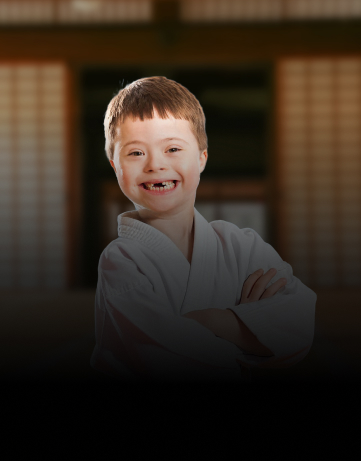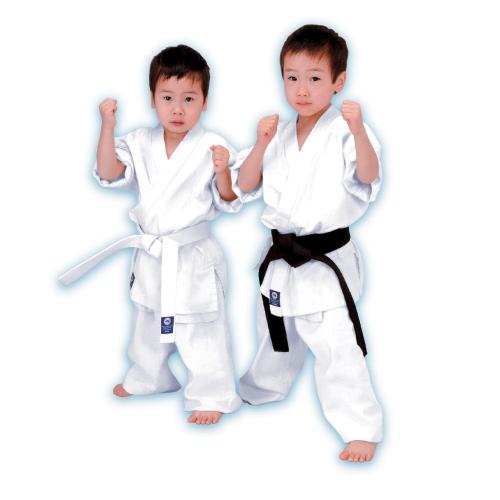Karate for kids – Support Your Child Through Respected Martial Arts
Wiki Article
Just How Karate for Kids Can Increase Self-confidence and Discipline in Young Martial Artists
Karate for youngsters supplies a special possibility to build confidence and discipline in young martial musicians. As they find out brand-new techniques and face difficulties, they not just obtain skills but likewise establish a solid feeling of self-worth. This structured atmosphere motivates them to value the journey of improvement. How does this training convert into their daily lives? Discover the much deeper links that make karate greater than just a sporting activity.The Relevance of Confidence in Childhood Years Development
Confidence is an important foundation in youth growth. When you support your child's self-confidence, you encourage them to face challenges, take dangers, and share themselves freely. Kids with confidence are a lot more happy to discover social scenarios and brand-new tasks, which can lead to long lasting relationships and beneficial experiences.Encouraging your youngster to tip out of their convenience area promotes strength. They find out that failing isn't the end however rather a tipping rock to success. By commemorating their accomplishments, regardless of just how tiny, you aid them identify their abilities and worth.In this journey, support and positive reinforcement from you play an essential duty. Whether it's through appreciation or merely being present, your participation increases their self-confidence. As they expand, this self-assurance becomes a lifelong possession, equipping them to navigate both challenges and opportunities with a solid feeling of self.Just How Karate Educates Self-control and Emphasis
Karate helps you construct discipline and emphasis with its organized training program. As you practice mindfulness throughout each session, you'll learn to focus much better both on and off the mat. And also, establishing and accomplishing goals in martial arts enhances your capability to remain fully commited and mindful.Structured Training Routine
While you engage in karate training, you'll promptly find how an organized regimen infuses self-control and focus in young experts. Each class follows a particular format, consisting of workouts, strategy practice, and sparring. This consistency educates you to appreciate the procedure and dedicate to enhancement. As you learn types and techniques, you establish a sense of duty for your very own progress.The structured setting motivates you to establish goals, whether understanding a brand-new belt or developing a kata. You'll discover that staying concentrated during classes and drills hones your focus. The self-control you grow in martial arts prolongs beyond the dojo, favorably influencing your schoolwork and daily regimens. Each session enhances the significance of devotion, helping you become a much more self-displined individual.Mindfulness in Method
As you practice martial arts, you'll discover that mindfulness comes to be a crucial part of your training. Each move requires your complete interest, assisting you remain concentrated on today minute. You'll learn to ignore interruptions and concentrate on your breathing, movements, and objectives. This enhanced recognition sharpens your reflexes and improves your discipline.During sparring or kinds, you'll discover the significance of being emotionally present - Karate Salisbury MD. You'll discover exactly how this emphasis not just improves your strategy but also builds your confidence. By practicing mindfulness in karate, you grow patience and strength, important traits that extend past the dojo. By doing this, martial arts instructs you to harness your mind, helping you create a self-displined strategy to difficulties both on and off the mat
Setting Goal Techniques
Setting objectives in karate isn't practically gaining belts; it's a powerful method to grow discipline and emphasis. When you establish particular, possible targets, you create a roadmap for your development. Instead of simply aiming to enhance your kicks, attempt focusing on understanding a specific technique each month. This strategy keeps you inspired and engaged.Breaking down larger objectives into smaller sized, manageable actions helps you track your development and celebrate tiny triumphes along the means. Whether it's improving your position or enhancing your sparring endurance, every objective strengthens your dedication. As you accomplish these objectives, you'll develop self-confidence in your skills and establish a solid sense of self-control that expands past the dojo into daily life.Structure Strength Through Martial Arts
Fighting style, specifically karate, provides children an unique opportunity to build resilience in a helpful atmosphere. In courses, they encounter obstacles that press their restrictions, whether it's competing or grasping a brand-new strategy with a partner. Each problem, like a missed kick or a shed match, ends up being a possibility to discover and grow.As they exercise, kids find out to embrace discomfort and keep trying, also when things obtain tough. They discover that failure isn't completion; it becomes part of the journey. This mindset aids them jump back more powerful, not just in the dojo, but in day-to-day life.With each obstacle they get rid of, your kid builds self-confidence in their capability to tackle obstacles, sustaining their decision. Through martial arts, they'll understand that strength isn't practically physical toughness; it has to do with mental grit and willpower, encouraging them to deal with whatever life tosses their method.The Role of Regard in Karate Educating
Respect is a fundamental principle in karate training, fostering a society of discipline and sociability among students. When you step onto the dojo floor, you're not simply learning strategies; you're additionally discovering to value your trainers, peers, and the art itself (Karate Salisbury MD). Bowing at the beginning and end of class isn't simply a formality; it signifies your recommendation of others' dedication.as and initiatives you establish shared regard, you'll locate it boosts your understanding experience. You'll listen more diligently to your teacher and gain understandings from fellow trainees. This environment urges useful criticism and assistance, permitting everybody to expand together.Moreover, respect grows self-discipline. Identifying the worth of effort and humility aids you stay concentrated on your training. Consequently, this regard equates right into your day-to-day life, enhancing your communications and connections outside the dojo. With martial arts, you learn that respect is essential for individual growth and area buildingAttaining and setting goals Success in Karate

Social Skills and Teamwork in the Dojo
While training in the dojo, children normally develop necessary social skills and teamwork capacities. As they exercise together with peers, they learn to connect successfully, share area, and support one an additional. Each course presents opportunities for cooperation, whether it's throughout partner drills or team workouts. This team effort promotes friendships and creates a feeling of belonging, making the dojo a nurturing environment.Kids likewise get useful dispute resolution skills. When they experience challenges, such as disagreements throughout sparring, they learn to browse these scenarios constructively. They exercise perseverance and empathy, comprehending that everyone has various staminas and weaknesses.Moreover, joining group tasks grows a feeling of responsibility. You'll see your child finding out to rely upon teammates and take responsibility for their duty in a group. These experiences not only boost their fighting styles journey however also furnish them with social devices they'll carry right into other areas of life.
The Long-Term Conveniences of Karate Beyond Childhood Years
As kids mature and change right into adulthood, the benefits of martial arts expand far beyond the dojo. You'll discover that the technique and focus learned with martial arts can translate into your professional and scholastic life. Setting and attaining goals in martial arts cultivates a solid work principles, which can press you to succeed in any endeavor.Moreover, the confidence gained from grasping methods and competing can enhance your self-confidence, assisting you deal with obstacles head-on. This strength comes to be important as you face the uncertainties of adulthood.Additionally, the social skills established with synergy and sinner tennis sociability in the dojo can bring about far better relationships in both expert and individual spheres. You'll find out to communicate successfully, check it out resolve disputes, and build a supportive network.Ultimately, karate shapes not simply knowledgeable martial musicians, however all-round individuals ready to tackle the globe.Often Asked Questions
What Age Is Ideal to Beginning Karate for Kids?
You can begin martial arts as very early as age four or 5, however it typically depends upon your child's maturation and rate of interest. Finding a course that fits their age and energy degree makes a huge difference.Exist Any Type Of Health Conveniences From Exercising Karate?
Yes, exercising karate offers various wellness advantages. You'll enhance your sychronisation, strength, and versatility while improving cardio physical fitness. And also, it improves focus and mental health, making it a fantastic selection for general physical and psychological health and wellness.Just How Commonly Should Kids Participate In Karate Courses?
You must encourage your children to attend karate classes at least 2 to 3 times a week. Uniformity helps them discover techniques successfully and develop abilities, making their experience more delightful and gratifying in the lengthy run.Can Karate Assist With Managing Stress And Anxiety in Kid?
Yes, martial arts can help take care of anxiety in kids. It teaches focus and self-control while offering a risk-free electrical outlet for energy. You'll discover your kid expanding extra confident and calm as they exercise consistently.What Gear Is Required for Children Beginning Martial Arts?

Report this wiki page